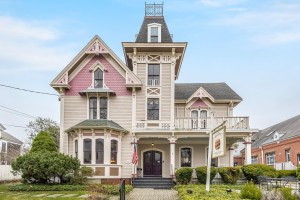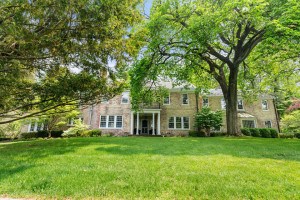Boston Condo Prices Increased Another 12 Percent in May
The median sales price of a condo in Boston rose 12.59 percent in May, even as the number of sales dropped by 19.19 percent, compared to May 2013, according to The Warren Group, publisher of Banker & Tradesman.
“Boston” in this regard refers to downtown neighborhoods including Beacon Hill, Back Bay, West End, North End, Waterfront, Chinatown, Bay Village, South End, and Fenway. Other Boston neighborhoods showed similar increases in median sales prices and decreases in condo sales volume.
| Neighborhood | Number of sales | Percent increase / (decrease) | Median sales price | Percent increase / (decrease) |
|---|---|---|---|---|
| Allston | 13 | (7.14%) | $420,000 | 53.71% |
| Boston | 160 | (19.19%) | $706,500 | 12.59% |
| Brighton | 30 | (31.82%) | $321,250 | 15.77% |
| Charlestown | 15 | (59.46%) | $517,500 | (4.17%) |
| Dorchester | 48 | 50% | $305,000 | 11.42% |
| East Boston | 15 | 400% | $320,000 | 97.53% |
| Jamaica Plain | 55 | 14.58% | $455,000 | 24.49% |
| Roslindale | 22 | 29.41% | $340,000 | (3.41%) |
| Roxbury | 29 | (23.68%) | $565,500 | (6.06%) |
| South Boston | 75 | (20.21%) | $489,000 | 13.85% |
| West Roxbury | 17 | 41.67% | $235,000 | (5.81%) |
Traditionally, condo prices and sales volume move in the same direction—if prices go up, volume goes up; if prices go down, volume goes down.
What we’re seeing instead these days is that prices are going up while the number of sales is going down. This is, without a doubt, the result of there being a very low level of inventory. Demand is high right now; there are many potential homebuyers out there. Unfortunately for them, there is very little supply. Too few homeowners are listing their condos for sale, so buyers are forced to pay whatever prices the sellers are asking, or more.
In Boston Proper, just about every condo listed for sale is going for or above asking price. And, it’s taking about a month and a half for the typical condo to go under agreement, an unheard of amount time.
| Price range | Number of listings | Average days on market | Average sales price | Average list price | Sales price to list price percentage |
|---|---|---|---|---|---|
| $250,000-$299,999 | 1 | 6 | $250,005 | $250,005 | 100% |
| $300,000-$349,999 | 5 | 55 | $325,400 | $341,180 | 97% |
| $350,000-$399,999 | 9 | 36 | $377,978 | $379,311 | 100% |
| $400,000-$449,999 | 10 | 25 | $423,660 | $410,500 | 104% |
| $450,000-$499,999 | 7 | 15 | $477,571 | $467,857 | 102% |
| $500,000-$599,999 | 23 | 32 | $544,891 | $543,639 | 101% |
| $600,000-$699,999 | 19 | 37 | $646,684 | $656,632 | 99% |
| $700,000-$799,999 | 14 | 50 | $751,714 | $742,214 | 101% |
| $800,000-$899,999 | 7 | 30 | $841,143 | $828,429 | 102% |
| $900,000-$999,999 | 6 | 99 | $958,525 | $979,167 | 98% |
| $1,000,000-$1,499,999 | 28 | 80 | $1,255,982 | $1,260,071 | 100% |
| $1,500,000-$1,999,999 | 10 | 100 | $1,716,000 | $1,803,500 | 96% |
| $2,000,000-$2,499,999 | 7 | 50 | $2,141,786 | $2,115,429 | 102% |
| $3,000,000-$3,999,999 | 1 | 50 | $3,762,500 | $3,949,000 | 95% |
| $5,000,000-$9,999,999 | 3 | 118 | $7,116,667 | $7,631,667 | 95% |
| Total | 150 | 53 | $1,015,157 | $1,031,756 | 98.4% |
It typically takes about six to eight weeks for a property to progress from going under agreement to closing, so the closings we are seeing in May are condos that went under agreement in March, at the beginning of spring, the season when there’s the most activity in the local residential real estate market. So, the May data doesn’t fully account for this low-supply, high-demand situation. My expectation, based on experience and the data, is that what we saw happen in May will repeat in June and July.
For Massachusetts as a whole, condo prices increased by 8.47 percent in May, posting a median selling price of $320,000 compared with $295,000 in May 2013. Year-to-date, condo sales continued to climb, recording a median selling price of $305,000, a 13.0 percent increase from the $270,000 in May 2013. May marked the 16th consecutive month the median selling price of a condo increased, year-over-year, according to The Warren Group.
Meanwhile, the latest S&P/Case-Shiller real estate index is out, showing a similar picture. Case-Shiller uses different methodology to calculate its numbers, and looks at Greater Boston, not just the city. Condo values increased 2.3 percent between March and April 2014 (the index tracks data on a 2-month delay) and were up 14 percent from the month a year earlier. Condo prices in the Greater Boston area have recovered completely since the recession. S&P/Case Shiller estimates that prices are now 84 percent higher than in January 2000, an all-time high.


